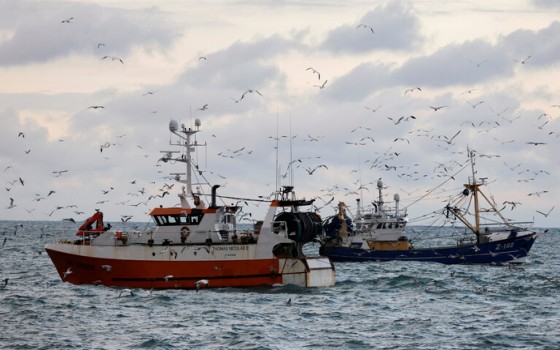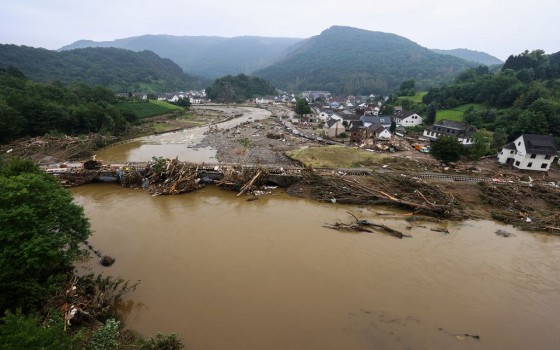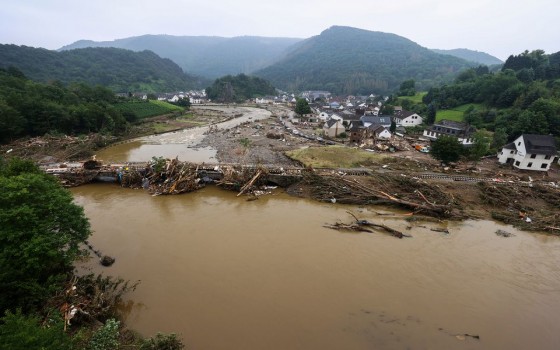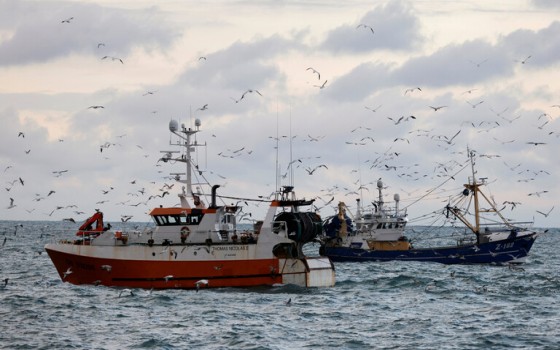
5 climate actions that made 2022 a step towards the goal of zero carbon

- Europe and Arabs
- Monday , 2 January 2023 8:14 AM GMT
The damage caused by climate change over the past year has been so massive at times that it is difficult to comprehend it. In Pakistan alone, severe summer floods have killed thousands, displaced millions and caused more than $40 billion in damages. Autumn floods in Nigeria have killed hundreds and displaced hundreds. More than a million people.
According to Phys, droughts in Europe, China and the United States have dried up previously unstoppable rivers and slowed the flow of trade on major arteries such as the Mississippi and Rhine.
Human response was uneven in response to these conditions, so the consumption of coal, the worst type of fossil fuel, rebounded in 2022, and it seemed that countries such as the United Kingdom and China backed away from major climate pledges, but all this bad scene came with more than one bright side, with the onset of 2022 A clear path of climate hope has emerged, and some new policy actions have the potential to unleash massive progress in efforts to slow and reverse rising temperatures.
There are a number of encouraging developments from a momentous year, as country after country elected more climate-oriented governments and made new efforts to reduce greenhouse gases.
1. A victory for President Joe Biden changed everything
In August, the Biden administration and a Democratic majority in Congress managed to pass the Inflation Reduction Act. This new American law, backed by nearly $374 billion in climate spending, is the nation's most effective climate legislation ever.
Its provisions ensure that for decades to come billions of dollars will flow toward the energy transition, facilitating the deployment of renewable energy, building green technologies and supporting consumer adoption of everything from electric cars to heat pumps.
Experts in energy models predict that the law will eliminate 4 billion tons of greenhouse gas emissions.
2. The European Union taxes carbon dioxide
The European Union is beginning to deliver on its pledge to cut emissions by 55% in 2030 (from 1990 levels), as the bloc's 27 member states reach a landmark agreement to create the Carbon Limits Adjustment Mechanism, an emissions tax on certain imports aimed at protecting Europe's energy-intensive industries. carbon and are being forced to comply with increasingly stringent regulations in the region.
Also, once it enters into force, there will be additional costs imposed on goods imported from countries that do not have EU restrictions on global warming pollution.
A separate event from 2022 saw the EU's largest reform, a carbon market that will extend to road transport, shipping and heating. This policy expansion will also accelerate demands by companies, from energy producers to steelmakers, to reduce pollution.
3. A push towards biodiversity
Negotiators at the UN's COP15 Biodiversity Conference in Montreal have scored a surprise victory in the form of a pledge from 195 countries to protect and restore at least 30% of the Earth's land and water by 2030.
Rich countries have also pledged to pay out an estimated $30 billion a year by 2030 to poor countries in part through a new biodiversity fund.
4. Rich countries agree to finance losses and damages
Delegates at COP27 in Sharm El-Sheikh, Egypt, reached a last-minute agreement to establish a Loss and Damage Fund to help developing countries affected by climate change, a decades-old request by countries that have contributed the least to global warming.
Another form of climate finance, Just Energy Transition Partnerships, will also be used more widely in 2022. The mechanism aims to help emerging economies that rely heavily on coal move away from more polluting fossil fuels in a way that leaves workers and communities behind.
5. Taking methane seriously
The world has been slow to understand the dangers of methane, a particularly potent heat-trapping gas, but since last year's COP26 conference, nations have signed a global pledge to reduce those emissions, which can come from oil and gas wells, coal seams, landfills, and wealth. animal.
Also, in the run-up to the COP27 conference in Egypt, new countries such as Australia joined the pledge and brought the total number of signatories to more than 150. Meanwhile, the Biden administration has pushed forward with stronger rules requiring energy companies to do more to limit methane leak.
Source: The Seventh Day website












No Comments Found